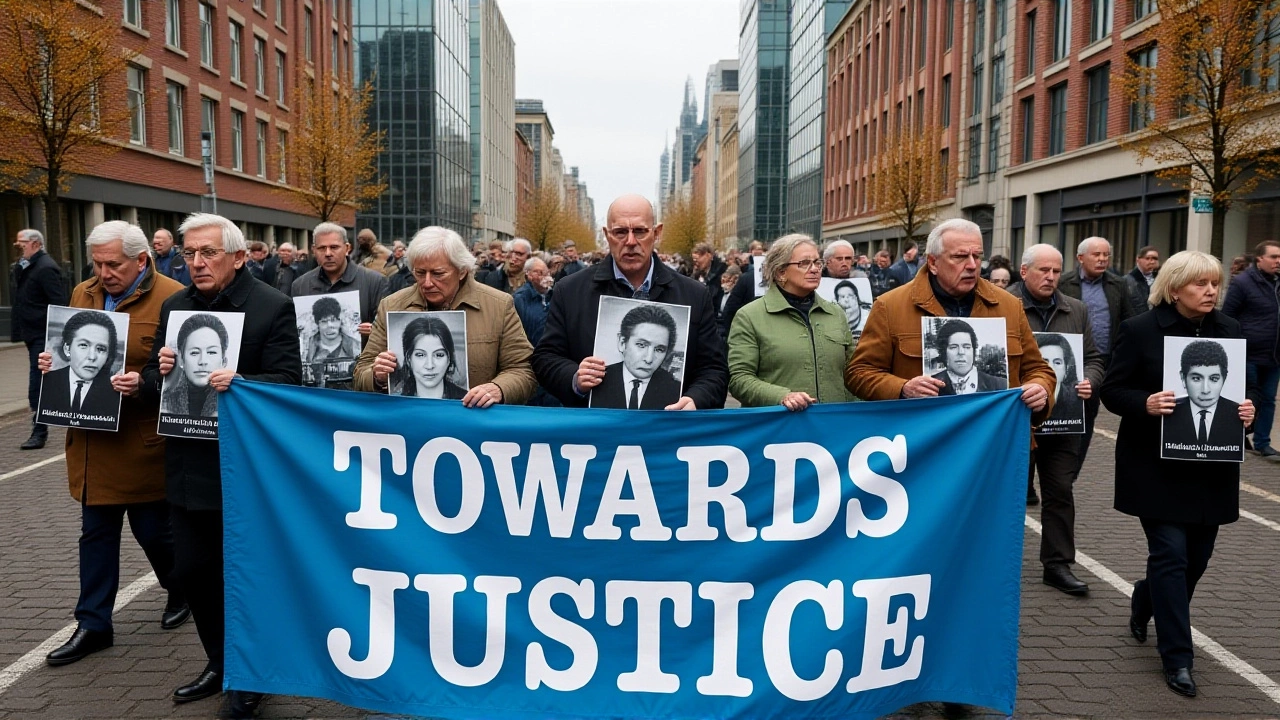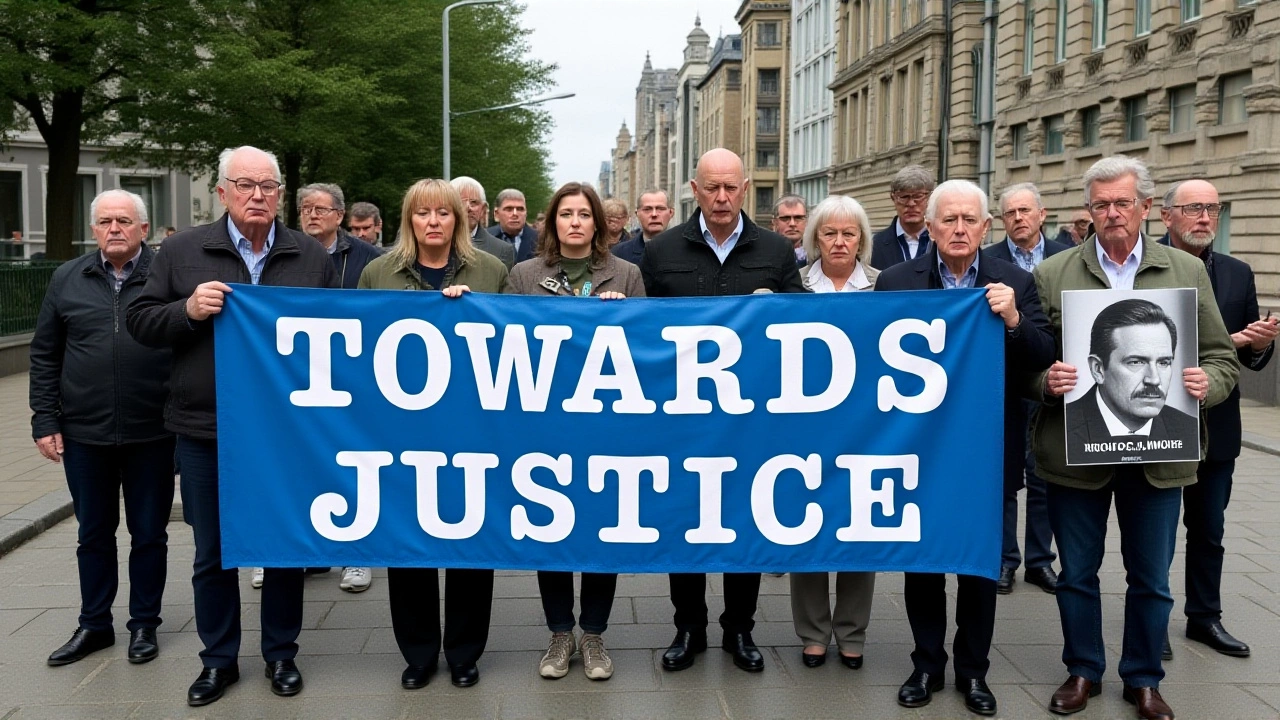Ex-Paratrooper Acquitted in 1972 Bloody Sunday Case by Belfast Court
 Oct, 24 2025
Oct, 24 2025
When Soldier F, a former British paratrooper, walked out of Belfast Crown Court on October 23, 2025, the headline was clear: he was acquitted of two murder and five attempted‑murder charges tied to the January 20, 1972 Bloody Sunday massacre in Derry, Northern Ireland. Judge Patrick Lynch delivered the verdict at roughly 2:39 a.m. ET, saying the prosecution had failed to prove beyond reasonable doubt that Soldier F opened fire on fleeing civilians. The ruling marks the end of the only criminal trial ever mounted against a British soldier for that fateful day.
Historical Background: From Civil Rights March to International Inquiry
The events of 1972 unfolded in the Bogside area of Derry during a peaceful civil‑rights march organized by the Northern Ireland Civil Rights Association. Members of the 1st Battalion, Parachute Regiment opened fire on unarmed demonstrators, killing 13 instantly and a 14th later, while wounding 15. The incident became the deadliest single‑day shooting of "The Troubles," a three‑decade sectarian conflict that only formally ended with the Good Friday Agreement on April 10, 1998.
In 2010, the Saville Inquiry – a twelve‑year public investigation chaired by Lord Saville – concluded that every person shot was unarmed and posed no threat. Prime Minister David Cameron formally apologized on June 15, 2010, but no soldiers were ever criminally charged until the Public Prosecution Service for Northern Ireland announced charges against Soldier F on March 7, 2019.
The 2025 Trial and Verdict
The non‑jury trial began in early 2025 at Belfast Crown Court, with the prosecution alleging that Soldier F killed 22‑year‑old James Wray and 27‑year‑old William McKinney, and attempted to kill five others, including Joseph Friel and Michael Quinn. Defense counsel Mark Mulholland painted the case as "fundamentally flawed" – witnesses were described as "fabricators and liars," their statements inconsistent, and memories faded after more than fifty years.
Mulholland opted not to call Soldier F to the stand, instead attacking the credibility of the prosecution's witnesses. On October 16, 2025, he warned the court that the evidence "does not rise to the level required for a conviction."
When the courtroom fell silent, Judge Lynch said, "The evidence presented against the veteran fell well short of what was required for conviction," while simultaneously condemning the Parachute Regiment's conduct that day: "Soldiers … had totally lost all sense of military discipline. Those responsible should hang their heads in shame."
Reactions from Families and Veterans
Relatives of the victims sat stoically; none shouted or displayed overt emotion as the verdict was read. A sister of James Wray later told reporters, "We respect the rule of law, even if it feels like a bitter pill. The truth will always be with us."
Veterans' groups, however, seized on the acquittal as a vindication of their long‑standing claim that the prosecutions are "historical witch‑hunts." The Association of Former Soldiers issued a press release stating, "Justice must balance accountability with fairness to those who served under chaotic circumstances."
Legal and Political Implications
- Only one British soldier has ever faced criminal charges for Bloody Sunday.
- The verdict may curb further prosecutions under the "historical institutional abuse" umbrella.
- Political parties in Northern Ireland are likely to cite the case in upcoming assembly debates on legacy issues.
- The UK government has yet to comment on whether additional inquiries will be launched.
Legal scholars suggest the acquittal could set a precedent for how evidence is weighed in decades‑old cases. Professor Elaine O'Connor of Queen's University Belfast notes, "The standard of proof remains a high bar, especially when witness recollection is contested after half a century."

What Lies Ahead: Ongoing Legacy Issues
Even with the verdict, the legacy of Bloody Sunday remains a flashpoint in Northern Irish politics. Community leaders continue to press for truth‑telling initiatives, while the UK Ministry of Justice has indicated it will review the handling of historical prosecutions.
Upcoming events that could reignite public discussion include the 2026 anniversary of the Good Friday Agreement and a scheduled meeting of the Northern Ireland Assembly's Legacy Committee in March 2026. Meanwhile, families of the 14 victims have pledged to keep the memory alive through annual memorial services.
Key Facts
- Acquittal date: October 23, 2025, 2:39 a.m. ET.
- Defendant: Soldier F, former lance corporal of the Parachute Regiment.
- Charges: 2 counts of murder, 5 counts of attempted murder.
- Judge: Patrick Lynch, Belfast Crown Court.
- Historical context: Bloody Sunday (1972), Good Friday Agreement (1998), Saville Inquiry (2010).
Frequently Asked Questions
How does the acquittal affect the families of the Bloody Sunday victims?
Family members say the verdict offers no closure. While they respect the court's decision, many feel the historical record of the massacre remains unchanged, and they will likely continue to seek official acknowledgment and reparations.
What led to Soldier F being the only soldier charged?
Investigations after the Saville Inquiry identified a small number of soldiers whose identities could be linked to specific shots. Soldier F was singled out because forensic analysis and witness testimony suggested he fired during the critical moments, prompting the Public Prosecution Service for Northern Ireland to bring charges in 2019.
Will the acquittal halt other historical abuse cases?
Legal experts warn it won’t automatically stop all legacy cases, but it may raise the evidentiary bar for prosecutors. Future trials will likely require more concrete, contemporaneous documentation to survive a similar defense.
What role did the Saville Inquiry play in this case?
The 2010 Saville Report established that those shot were unarmed, providing a factual foundation for the 2019 charges. However, the inquiry’s findings were challenged by the defense, who argued that the passage of time eroded the reliability of witness recollections.
What are the next steps for the Northern Ireland legacy process?
The Legacy Committee of the Northern Ireland Assembly is set to review the verdict and consider recommendations for further truth‑reconciliation measures. A public forum is scheduled for early 2026 to gather input from victims' families, veterans, and community leaders.